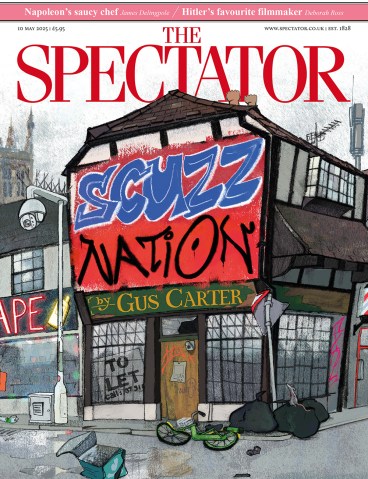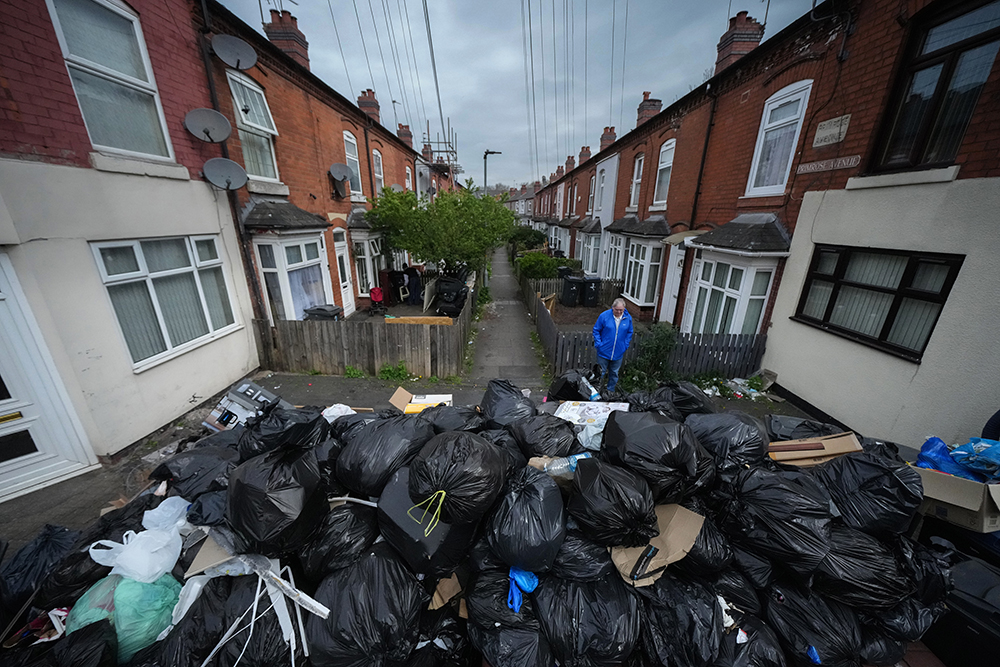
Democracy was born in the public square. The Athenian agora was the central meeting place of an engaged citizenry where business was transacted, social life flourished and a common direction for the people was determined.
The idea of a public square – where individuals operate in a relationship of trust and shared endeavour – is embedded in the life of our democracy. But today, increasingly, our public squares are squalid, lawless, derelict spaces, as Gus Carter records in our cover piece. Shoplifters go unpunished, fly-tipping is unpursued, drug-taking and dealing are commonplace. The busy commercial and social life of the high street a generation ago has been supplanted by rows of barber shops many of which are cover for money laundering, vape stores which feed teen addictions and vacant sites which distant landlords feel no incentive to fill. The air of decline hangs as heavy over these precincts as the persistent and sickly aroma of cannabis smoke.
And when the public square is so visibly in decline it is no surprise that our democracy reflects that. Anger at the failure to uphold established authority on our streets was the drumbeat recorded by pollsters and canvassers in the run-up to last week’s elections. Luke Tryl, of the More in Common thinktank, found voters in despair at the rise in petty crime, the proliferation of anti-social behaviour, the failure to pursue shoplifters, the aggressive begging, the conversion of family houses into homes where young men are warehoused and the absence of consequences for those who subvert public order. Voters from every background lamented the chaos, decline and disorder they see on their streets and responded by punishing those nominally in authority in local and central government – the established parties, Conservative and Labour.
The traditional parties intuited a storm was coming. Labour sought to staunch its haemorrhage of support by promising on the eve of the poll to use drones to track down fly-tippers. The Conservatives focused their fire on the rubbish-strewn streets of Birmingham as the stand-out example of municipal socialism’s failure and pledged a tougher line on public sector trade unions who have evaded their responsibilities to their fellow citizens. Even the Liberal Democrats, the ostensible party of lifestyle libertarianism, campaigned for tougher penalties on train and bus passengers who play music too loudly. When the party which went into the last general election seeking to legalise cannabis calls for a crackdown on careless Spotify use, it is clear that restoring calm, order and authority to the public square is now imperative.
When the public square is so visibly in decline it is no surprise that our democracy reflects that
The answer, however, that the public overwhelmingly gave to the question of who can best arrest the decline in our civic life was not Labour, the Tories or the Lib Dems but Reform. The main parties levelled a series of criticisms at Reform – their inexperience in office, their reliance on outsiders as candidates, their demand that local councils end policies which are not local government’s responsibilities and their linking of so many complex social ills back again and again to migration. But for many voters each of these factors only made the case for Reform more compelling. Their candidates were not complicit in the visible decline of order on our streets. The party was right that there should be local democratic control over spending on policies, trends and fashions that had been dictated by Whitehall and never endorsed by the communities affected. And how could migration not be linked to the growth in the number of recent arrivals billeted in houses of multiple occupation, the changed nature of high street commerce and the gang culture in some communities?
For the citizens of Hull, who voted Reform in such numbers, one of the most visible signs of how their civic life has changed has been the use of the Royal Hotel, once the heart of the city’s social life, as a contingency centre for asylum seekers since 2019. The building where Hull families used to celebrate weddings and anniversaries has become, for many, a symbol of the state’s failure to control its borders – a loss of a special part of the public square because authority was once again absent.
There are signs that some in the old parties understand the nature, and depth, of public despair. Jonathan Hinder, the Labour MP for Pendle and a former police inspector, and Neil O’Brien, the Tory MP for Harborough and a former levelling-up minister, have both made the connection between the need to restore authority to our streets and the need to bring migration under control if public faith is to be restored in our democracy. To meet that need means embracing policies tougher than those that seem to have been entertained by any minister. It would require the public to see an effective moratorium on migration – not just tinkering with visa requirements – and certainly not opening our borders to millions of young Europeans with scant hope of ever being able to return them. It would also require active and visible policing, vigorous deployment of stop and search, pursuit and arrest of all shoplifters, and an end to public drug consumption.
It may seem an illiberal turn from which the enlightened shrink. But liberty depends on order. And we will all enjoy a diminishing portion of liberty unless the state once more exerts its authority.







Comments